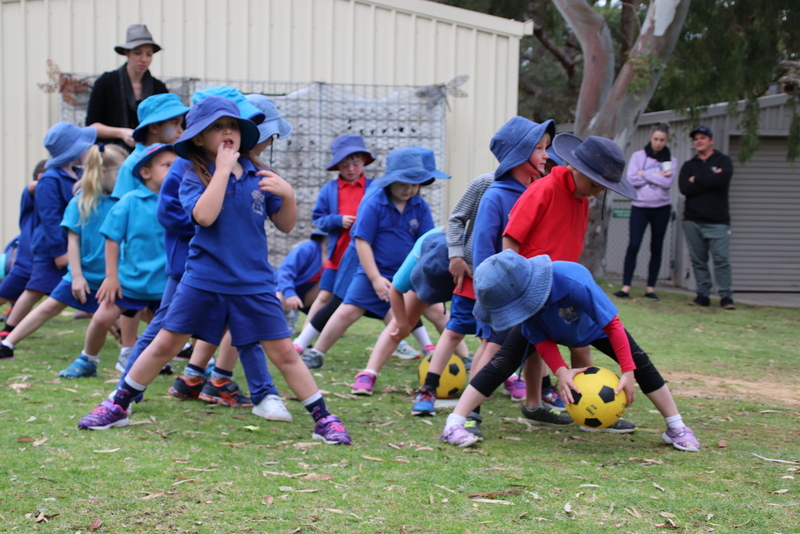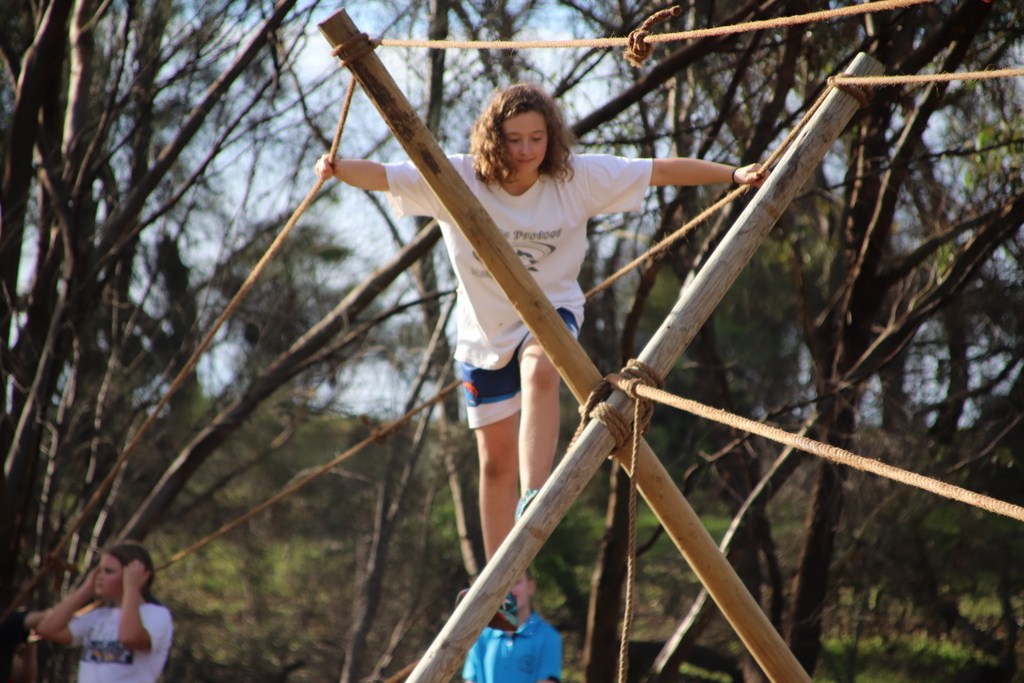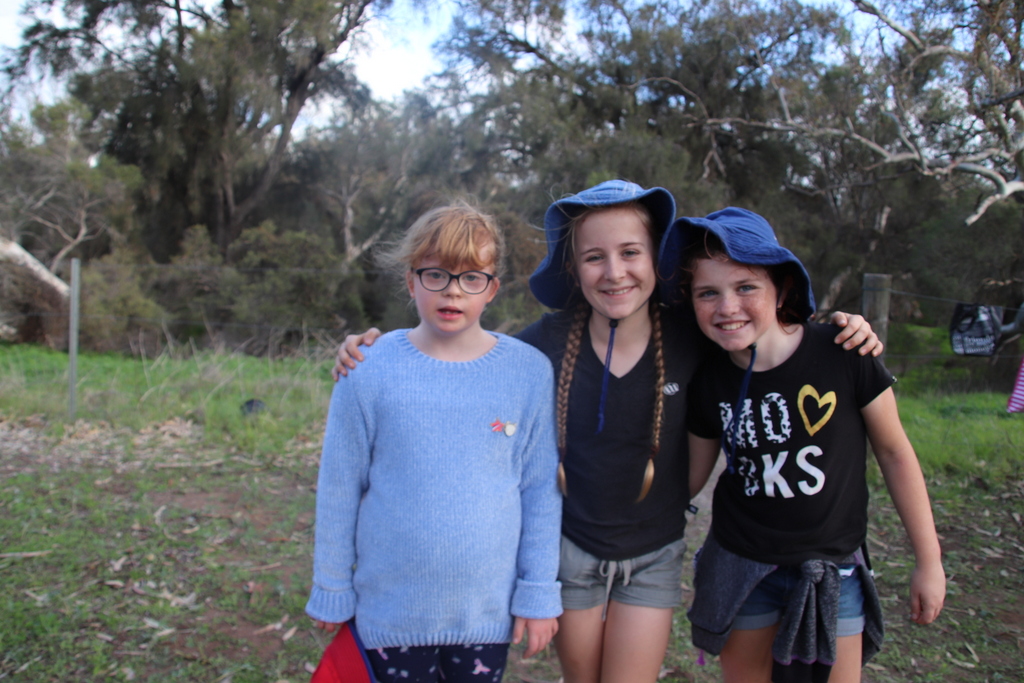Subscribe to our school newsletter
"*" indicates required fields
Having so many students, parents and staff in a confined space, results in school often being a source for sickness and health issues. To prevent the spreading of germs it is important students who are unwell are kept home. Please notify the school of absences via phone, email or text on Seesaw.



Playing outside gives your child the chance to explore the natural environment and have adventures. They can play favourite games, test their physical limits, express themselves and build their self-confidence.
Spending time outdoors might lower your child’s chances of being short-sighted. And a bit of safe play in the sun can be good too – small amounts of sunlight exposure can help boost vitamin D levels. For more information visit the Raising Children Website.
Tell the school about your child’s health needs at enrolment. After that, tell the school immediately if your child’s health needs change. You will be asked to complete a Student Health Care Summary. When you return the completed form, the school will give you one or more health care plans to complete, sign and return to school.
We encourage you to meet with school staff to discuss the health care plan, particularly if staff need to be trained to support your child.
Some health care plans for serious conditions require a medical practitioner’s signature. It is important to arrange this as soon as possible. Where necessary, provide up-to-date medication and support equipment in good working order.
If staff are required to administer medication, an authority to administer medication form will need to be completed.
We will:
Waggrakine is an alleregy aware primary school. Parents and carers are discouraged from sending in food items that contain nuts or traces of nuts. Waggy staff will work with parents/carers and children in the management of anaphylaxis.
Parents need to advise the school if their child has been diagnosed with an allergy/allergies that could affect his/her learning or wellbeing at school. Severe allergies or anaphylaxis may result in emergencies and the school must be informed.
Anaphylaxis is a severe and sudden allergic reaction. It occurs when a person is exposed to an allergen. Anaphylaxis is potentially life threatening and always requires an emergency response.
Asthma affects a significant number of children and young people. Parents need to inform us if their child has asthma. Students with asthma need ready access to their reliever medication when an attack occurs. In most cases formal arrangements are made between the school and parents for students to carry reliever medications with them while at school and on all school excursions.
Where the student with asthma is young, or needs assistance to administer the asthma medication, the school will consult with parents and staff to determine the best arrangement for administering the asthma medication when the student needs it.
In cases of severe asthma or where the Principal determines that the student’s health support needs cannot be met within existing arrangements, he or she will consult with parents and staff in developing an individual health care plan for the student.
Parents will need to provide information from the child’s doctor.
Waggrakine supports the Asthma Friendly Schools Program a national project of the Asthma Foundations of Australia. An asthma friendly school is one where strategies are put in place to support the whole school community in the management of asthma.
For more information see
Diabetes is a condition in which there is too much sugar (glucose) in the blood. Glucose is the main source of energy for the body and comes from the carbohydrate foods we eat.
The body breaks carbohydrates down to glucose which then enters the blood stream. For glucose to enter the cells and be used for energy, a hormone called insulin must be available.
Diabetes occurs when the body does not make enough insulin or the insulin it makes doesn’t work properly to control the (sugar) glucose level in the blood. This leads to increased blood glucose levels and diabetes.
There are two main types of diabetes.
Type 1 diabetes
Type 1 diabetes usually affects children and adolescents. It occurs when the body no longer produces the insulin needed so lifelong daily insulin injections or insulin by insulin pump are required, as well as blood glucose monitoring, regular physical activity and a healthy eating plan. Type 1 diabetes is not caused by lifestyle factors. Type 1 diabetes is increasing in prevalence by about 3% per year among children less than 15 years of age in NSW. Source: Diabetes Facts 2009 Diabetes Australia-NSW.
Type 2 diabetes
Type 2 is more likely to affect adults, however, recent evidence shows that type 2 diabetes is increasing in children and adolescents. It occurs when the body is not producing enough insulin or the insulin is not working properly. Physical activity, healthy eating, blood glucose monitoring and sometimes medications and/or insulin are needed to keep blood glucose levels in the ideal range.
Type 2 diabetes is associated with lifestyle factors such as overweight, obesity as well as family history and cultural background.
For more information follow these links
Epilepsy is a disruption in brain function that results in recurrent seizures or fits.
Most children and young people with epilepsy are of normal ability and intelligence and will be able to take part in the full range of school activities.
If prescribed medication is taken regularly, in most cases there will be no seizures at all, or very few. However all staff should be able to recognise seizures and know what to do if one occurs in the playground or classroom. For more information see the Epilepsy Association of WA.
To help maintain a healthy environment and to prevent, to the extent possible the spread of disease, schools should encourage hand washing and ensure that soap or another cleansing agent is provided. Whilst there is no specific policy or procedural statement which identifies minimum requirements for provision by schools of hand-washing materials or facilities for students, the Department expects that these strategies are in place in schools.
Students should wash their hands:
Hand washing should include a minimum of 15 seconds of lathering the hands and fingers with soap before rinsing and drying.
Unfortunately head lice infestations are a common occurrence, particularly in primary schools.
Treatment
Daily combing of white hair conditioner using a fine tooth comb is effective in getting rid of head lice and eggs (nits). Waggrakine, like many schools, occasionally hold ‘check and treat’ or Nitbuster days where everyone learns about and starts treatment on the same day. This is advertised through a note home.
Tips for parents in reducing the spread of head lice
As infestations are particularly common in primary schools, it is best to choose a treatment that can be used over time. There is no single solution to eradication, only persistence.
What you can expect from your school?
Where one student has head lice this serves as a warning light that there is likely to be an infestation in either specific classes or across the whole school population, including staff.
The school will send a letter home to parents when infestations of head lice occur and request that parents examine their child’s hair and undertake treatment where eggs or lice are identified.
Waggrakine provides ways of communicating information about head lice infestations and treatment for parents (eg through school newsletters).
Immunisation is a simple, safe and effective way of protecting people against harmful diseases before they come into contact with them. Immunisation not only protects individuals, but also others in the community, by reducing the spread of preventable diseases. for more information about immunisation please visit the Department of Health Site.
The focus of the prevention of infection in schools is to reinforce the message that students and staff with influenza-like illness should stay away from school and from public places until their symptoms have abated. Sound health and hygiene practices are to be used in schools.
Australia has the highest rate of skin cancer in the world, mainly caused by exposure to the sun.
Despite the fact that skin cancer is largely preventable, one out of every two Australians will be diagnosed with skin cancer during their lifetime. Western Australia continues to have the second highest incidence of skin cancer in the country after Queensland.
Evidence clearly shows that sun exposure in childhood and adolescence greatly increases the chances of developing skin cancer in later life.
Waggrakine is an accredited Sun Smart School.
Parents are able to access dental care for their children through the Dental Therapy Centres based at Bluff Point and Rangeway.
Please check the Raising Children web site for more information, although if your child is sick please consult with a doctor. The Education Department Student Health Care web page also has a high number of links for a variety of different mental and physical health conditions.